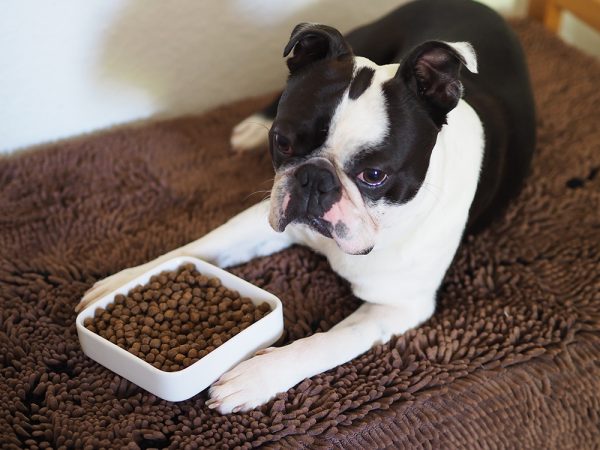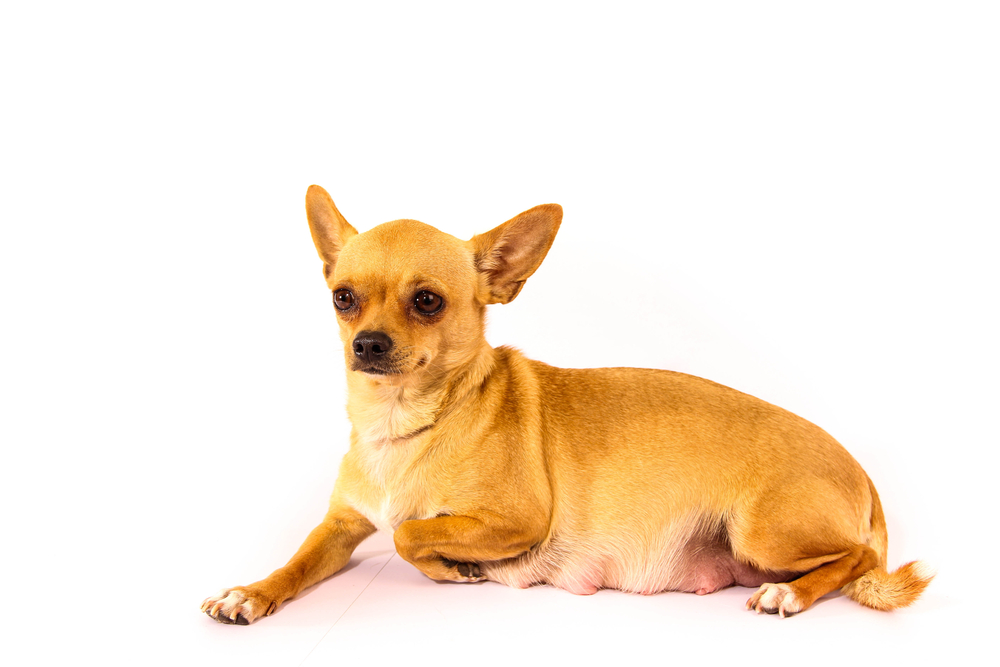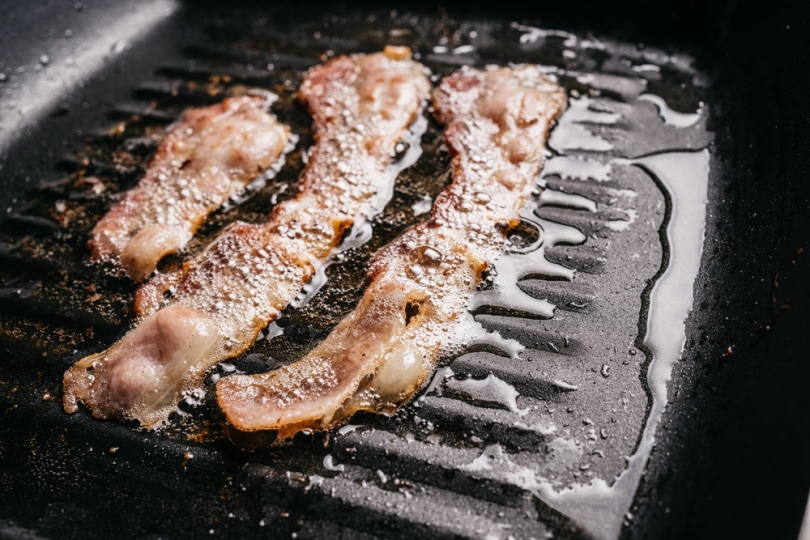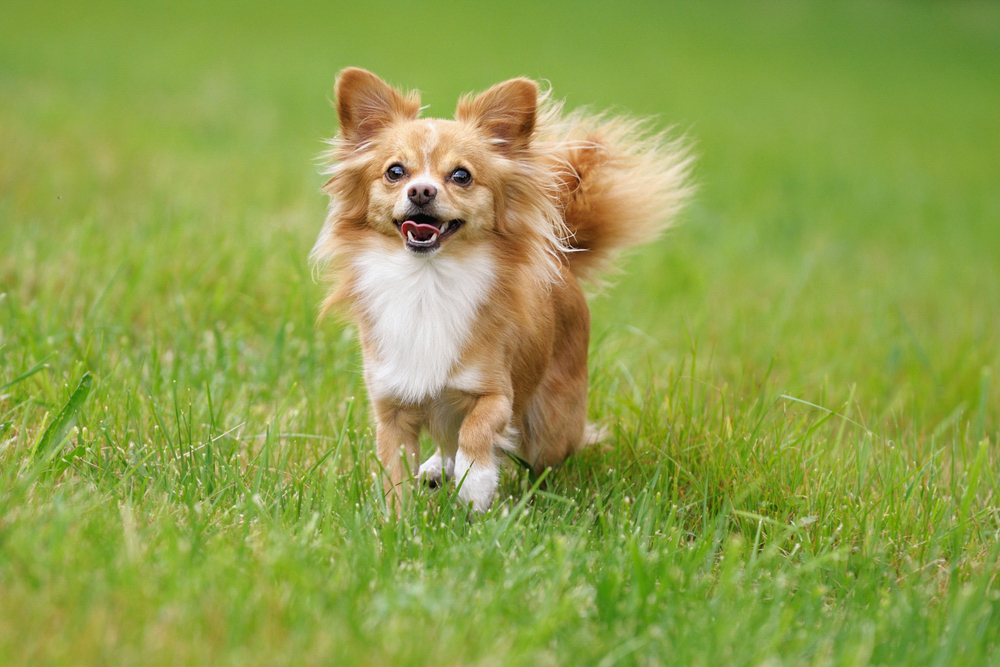Different types of dog food contain different ingredients. Changing what goes into your dog’s mouth can affect what’s coming out the other end because the new ingredients can be digested differently from the old ones. On top of that, your dog may have an upset stomach from the change in food if their gut hasn’t had time to adapt. There are three main reasons why your dog is pooping more after changing their food, and we will discuss them in this article.
The 3 Reasons Your Dog May Poop More After Changing the Food
1. The Gut Microbiome
The gut microbiome is a variety of microorganisms that populate the intestines in animals. Beneficial organisms aid digestion and reduce the number of harmful bacteria. A dog’s microbiome changes and adapts to the diet they are fed. While these changes occur fairly quickly, feeding the new food all at once can lead to the digestive system not digesting the new food properly.
To avoid stomach upsets, you need to change your dog’s food gradually. This ensures beneficial gut bacteria can dominate and reduce the incidence of diarrhea. This can usually be done over about a week. On the first few days of the diet change, you should mix 25% of the new food with 75% of the old food.
You can gradually increase the amount of the new food they are offered. Their stool should remain healthy over the transition period, but if they experience vomiting or diarrhea, you may have to change the food more slowly or see a vet.
If your dog is experiencing runny stools or vomiting, rapidly changing their diet could be the cause, which could make them poop more than usual.
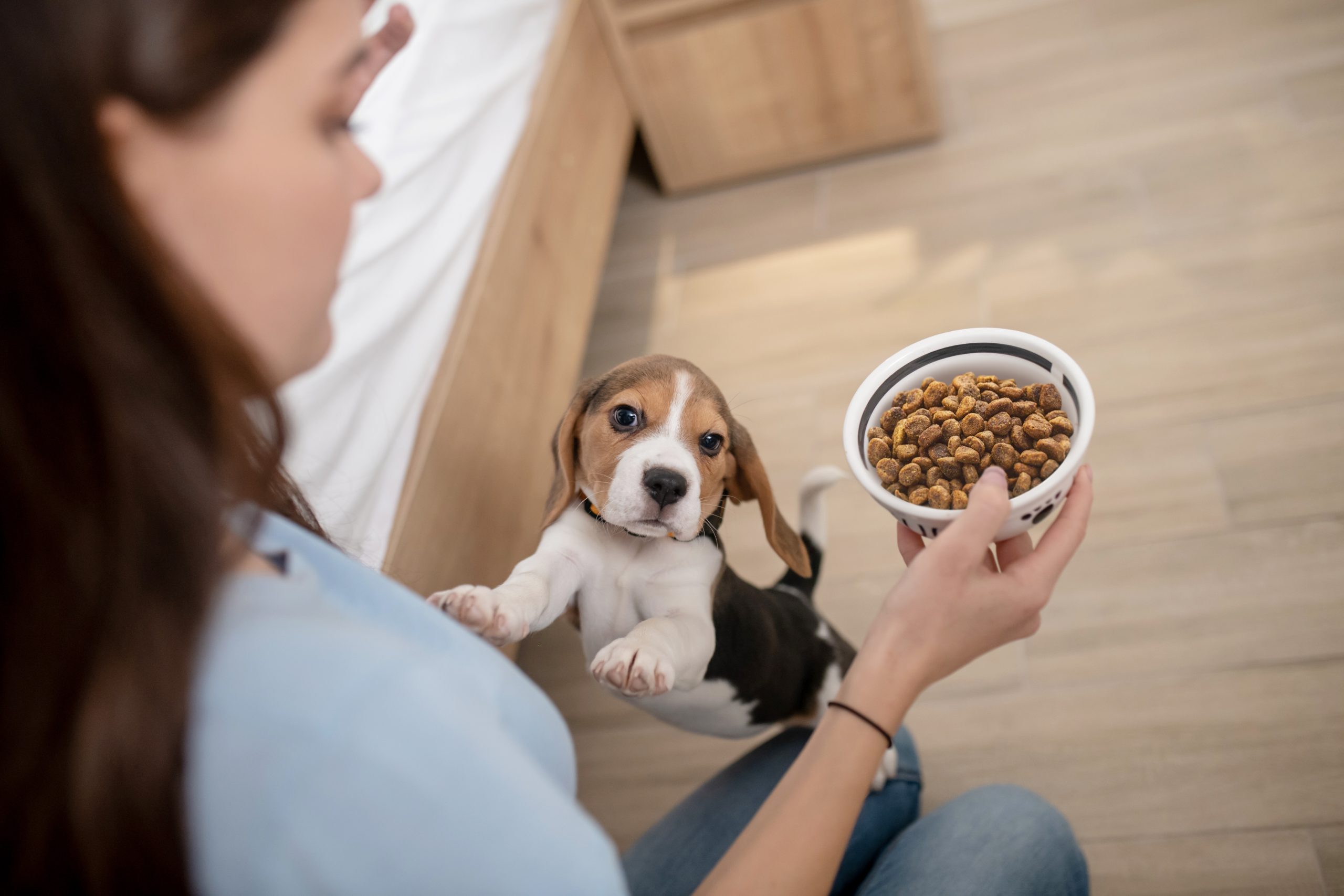
2. Digestibility
As previously mentioned, the new food will probably have different ingredients and nutrient ratios than the old ones. One factor in how much poop your dog makes is the digestibility of these ingredients. Essentially, higher digestibility means more of the food provides nutrition to your pet, and less waste comes out in their poop.
More digestible foods, therefore, provide better quality nutrition for your dog. Often, you need to feed less of these diets.
Some types of fiber can increase the amount of poop as they are not digestible. However, this is not always a bad thing since there are diseases like obesity or constipation where animals can benefit from increased fiber. Interestingly, puppies under 6 months and geriatric dogs do not digest ingredients as well as other dogs.
If your dog is producing larger or more frequent stools, but the stools are normal, and your dog is healthy, the new food’s digestibility is likely different from the old food. This isn’t necessarily harmful to your dog, but you should monitor their overall health and body condition to ensure they thrive on the new food.
3. Food Allergies
Dogs can be allergic to some foods. Like people, some dogs can tolerate certain foods while others will have an immune reaction to the same food. If your dog has an allergy, it doesn’t mean you are feeding them anything wrong; it simply comes down to their individual immune system. Beef, dairy products, chicken, and wheat are the most common food allergens in dogs.
Food allergies can cause vomiting, diarrhea, and pooping more than usual. However, they are commonly accompanied by other signs like itchy skin and recurrent ear infections. A new diet may contain something your dog is allergic to. If you suspect food allergies, you should speak to your vet about investigating what your dog is allergic to so you can avoid it in the future.
PangoVet. It’s an online service where you can <b>talk to a vet online</b> and get the personalized advice you need for your pet — all at an affordable price!</p>
<p><div class="su-button-center"><a href=https://www.dogster.com/ask-the-vet/"https://pangovet.com/?utm_source=dogster&utm_medium=article&utm_campaign=dog_bowel_issues%22 class="su-button su-button-style-default" style="color:#FFFFFF;background-color:#FF6600;border-color:#cc5200;border-radius:9px;-moz-border-radius:9px;-webkit-border-radius:9px" target="_blank" rel="nofollow"><span style="color:#FFFFFF;padding:0px 24px;font-size:18px;line-height:36px;border-color:#ff944d;border-radius:9px;-moz-border-radius:9px;-webkit-border-radius:9px;text-shadow:none;-moz-text-shadow:none;-webkit-text-shadow:none"> Click to Speak With a Vet</span></a></div></div></div></p>"}" data-sheets-userformat="{"2":513,"3":{"1":0},"12":0}"> If you need to speak with a vet but can’t get to one, head over to PangoVet. It’s an online service where you can talk to a vet online and get the personalized advice you need for your pet — all at an affordable price!
Frequently Asked Questions (FAQ)
What Does It Mean When Your Dog Poops More Than Usual?
If your dog poops more than usual, they could be eating more undigestible ingredients, leading to more waste in the form of poop. More feces can also be a sign of an upset stomach, but generally, it will be diarrhea.
How Many Times a Day Should a Dog Poop?
Dogs usually poop one to three times per day. It changes from dog to dog. Age and the number of meals fed daily can also influence this number. Your dog probably has their own schedule if you are feeding them at fairly regular times. Any sudden changes should be noted, but they can be due to a diet change.
What Does Unhealthy Poop Look Like in Dogs?
Unhealthy poop can be extremely hard to the touch or too loose, even watery. It can also have parasites, blood, or mucus in it. Healthy poop, on the other hand, is usually a shade of brown and formed.
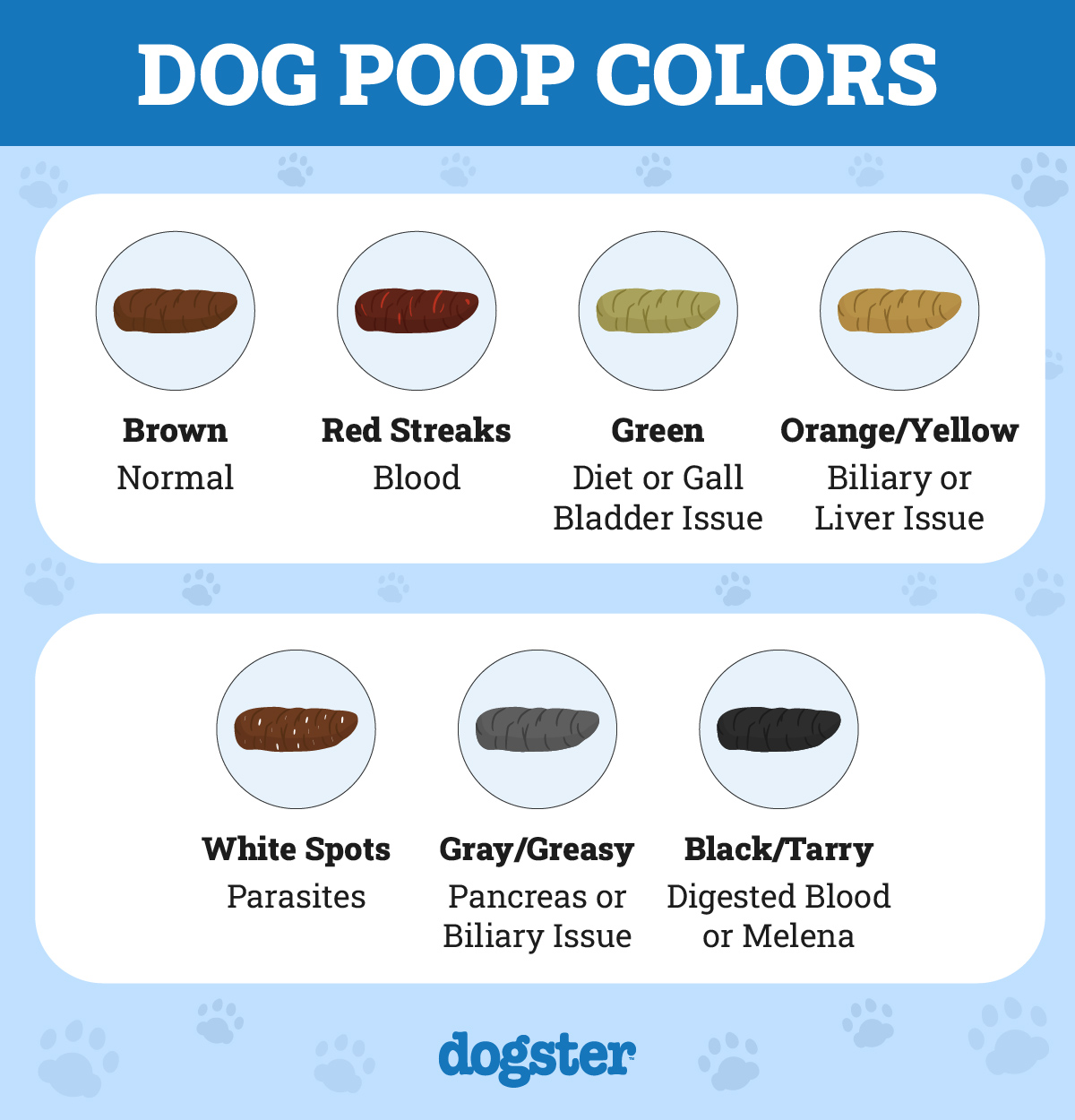
Conclusion
A change in diet changes your dog’s microbiome and can affect their health. If your pup is allergic to the new food or the diet is changed too rapidly, they can show signs of illness. On the other hand, if they are otherwise healthy but producing more poop, the digestibility of the new food is the most likely cause.
You should always change your dog’s diet gradually and monitor for any adverse reactions when switching foods. If your dog does appear to have an adverse reaction, you should speak with your vet, especially if you can’t switch your dog back to their normal diet.
Featured Image Credit: Jaja Fekiacova, Shutterstock


